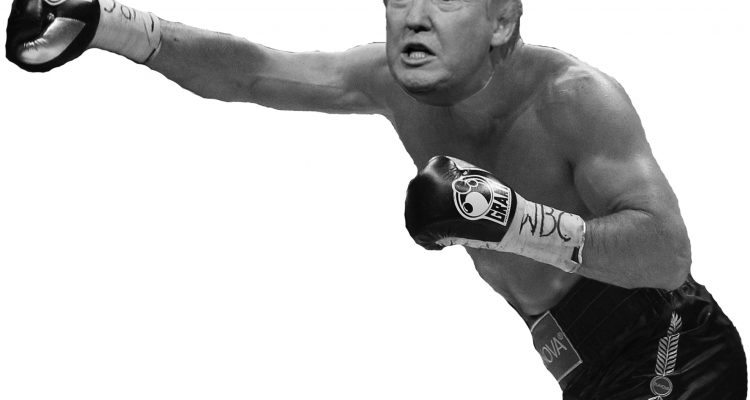As Election Day approaches, Democratic candidate Hillary Clinton and Republican candidate Donald Trump prepare their policies and rhetoric for their third and final debate, which — like the previous two — highlight the candidates’ responses to issues plaguing the country. On Oct. 9, Clinton and Trump engaged in the second debate of the series, with Trump eventually taking back prominence after an atrocious showing at the First Presidential Debate. Under scrutiny due to recent remarks concerning his potential sexual assaults of women, Trump had a strong performance in terms of overall presentation against his opponent and sharpening of the rhetoric of his policies.
The debate immediately took off with the moderators, both of whom align with the democrats, addressing Trump about the aforementioned sexual assault allegations. Trump professionally handled the line of questioning and said that his words were not subject to action. Additionally, he said that worse things have come from Clinton in terms of sexual misconduct, such as the case of Kathy Shelton, who Clinton silenced by shutting down her case back in 1975 after Clinton defended the accused, Thomas Alfred Taylor. Clinton served as a criminal defense lawyer for Taylor during his trial in which Shelton stated that Taylor had raped her along with an accomplice. To the dismay of many, Clinton requested the removal of the case, which was granted. In addition, Clinton was cited by The Washington Post as laughing at Shelton in court at the conclusion of trial and during a private interview, which was leaked to the general public in 2007.
The allegations against Trump should come as no surprise as almost every modern political candidate has come under some form of scrutiny prior to their nomination. Before President Barack Obama’s first presidential nomination in 2008, allegations arose of his unconstitutionality. It was said that Obama refused to say the Pledge of Allegiance and maintained a secretive relationship with Reverend Jeremiah White, who was considered to be pro-Muslim, someone who blamed the U.S. for the 9/11 attacks and also assumed that the country was hiding the cure for HIV. These allegations were eventually settled as I’m sure these attacks on Trump will later, too.
Besides defending himself against the wavering allegations, Trump also managed to strongly defend the various points of his policy, something that Clinton failed to do as successfully. He stated that he has already conducted a thorough process to find Supreme Court justices, citing that he had 20 candidates in mind for the position. For Clinton, there was no solid definition for her methodology other than that her justices would uphold Roe v. Wade and the Marriage Equality Act, both of which she was staunchly against before her tenure as secretary of state to Obama.
Critics seem to constantly attack Trump, such as David Sable and Will Johnson from CNN who co-wrote an article stating, “Although he keeps talking about himself as a political ‘outsider,’ he is rapidly losing the credibility to make such a claim.” However, these same critics seem to be pardoning Clinton for her intrinsic rejection of the law with her email scandal and wikileaks breakthroughs that the Democratic National Convention, along with Clinton’s campaign, took advantage of Senator Bernie Sanders during the primaries. Though there are many things that can be negatively stated about both candidates, I feel as though Clinton and Trump should both be looked at in the same light of scrutiny, even if Trump’s rhetoric may anger the general public more than Clinton’s actions.
For Trump, the way to place the odds in his favor is through the continual rise in performance during the debates, the final of the three debates occurring tonight. In a nation that seems to be constantly opposing Trump, the Republican candidate must maintain his drive and political anti-establishment to gain the lead on Clinton prior to Nov. 8.


Leave a Reply